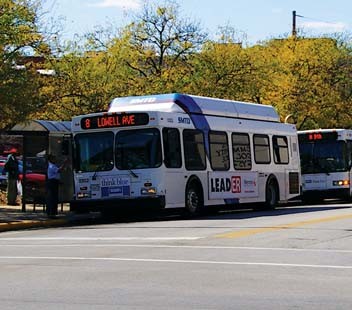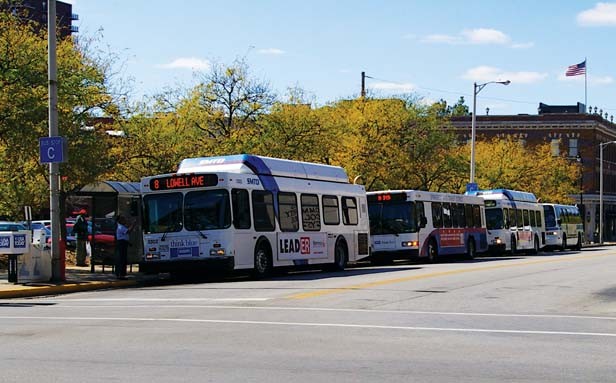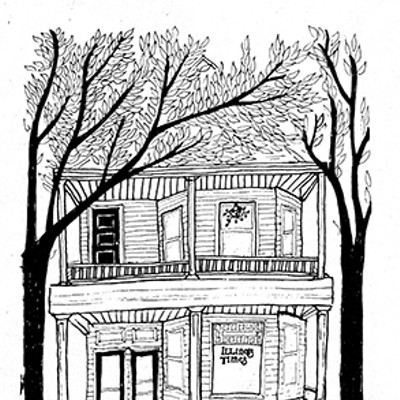In late August the Springfield Mass Transit District Board chose as its new executive director a retired Corrections Department internal affairs investigator. The new hire’s qualifications to run a public transit agency seem to be that 1) he is from Springfield and 2) is the son of a former Sangamon County board chairman. Karen Hasara reportedly defended the selection of a non-professional to run the SMTD by pointing out that the board had just hired as operations director an experienced man “who’s not from here,” adding, “I think that having somebody from Springfield over him is probably a good idea.”
No one who knows Springfield will be much surprised that a former mayor prefers that her town have the most Springfield bus system rather than the best bus system. The State Journal-Register, in high dudgeon, editorially scorned the decision as “embarrassing and a disservice to taxpayers.” I would add that it looks to be a disservice to bus riders too – not only the people who take 1.7 million rides each year on SMTD vehicles but the many more people who might take the bus if service was expanded and improved.
The SJ-R blames nepotism and cronyism for this kind of provincialism, but there is something more at work as well – the scorn the Common American feels for expert knowledge, for professionalism, for fact-based decision-making. I won’t here explore the many ways this attitude affects private lives or such public behavior as voting. What matters to bus riders is the way people are chosen to do the people’s work.
The political thinker Francis Fukuyama says that it was Andrew Jackson who first sneered that there was no government job so difficult that any ordinary American couldn’t do it. (It turned out that the presidency was one such job for Jackson, but never mind.) Jackson’s spiritual descendants still believe that they could do any government job, well enough anyway to tell people with government jobs how to do theirs. The result, Fukuyama writes, is that Americans “tend to believe that democracy is an intrinsic part of good governance and that more democracy means better quality government.”
Democracy may properly be an intrinsic part of public policy-making, but more democracy in public administration usually means less good public administration. A familiar example in Springfield is aldermen’s disdain for the good advice on zoning and development given them by the technocrats who staff the Springfield-Sangamon County Regional Planning Commission.
Old Hickory’s ghost haunts the halls of every city hall, every state legislature and Congress, even in an age in which the demands on public employees have grown ever more complex. Look at the State of Illinois. The People, for all their wisdom, have no idea how to set up an ecosystem monitoring network or conduct a recidivism study or evaluate a bridge truss for safety, so they hire people who do know to do it for them. If they left agencies in the hands of these well-trained professionals the public would have better-run agencies, that is, agencies that are more honest, more competent and more informed. Instead, they place them under uncredentialed political appointees. Some are wonderfully capable, but most are more well-meaning than competent and too many are neither.
It might be different in Illinois, because it has been different. A model of the type is Robert Mandeville, the longtime director of the Bureau of the Budget, a PhD in economics and public finance whom Jim Thompson credited with bringing Illinois finance into the 20th century. Another of too few was the late Stanford grad John Kramer, a Dan Walker appointee who also studied economics and politics at Oxford and was a nationally recognized expert on transportation finance.
City bus service is undergoing a renaissance in cities around the country, thanks to new technologies and new ideas about service delivery. But, as the SJ-R pointed out, we don’t know if there is a young Mandeville or Kramer out there eager to make her mark on her profession by turning SMTD into a model small-city public transit system because the board didn’t bother to find out by conducting a national search for its new executive director.
In the world’s most advanced nations, which the U.S. ought to be taking as its model in such matters, citizens and their elected representatives respect their bureaucratic elites more than Americans do theirs. And it is not coincidental that European airports and roads and public transit and water systems are, in general, more modern and better maintained than ours. The crafty Europeans do not spend more money on them than we do – they spend less – but they do let the people who know how to do such things design and build them without interference. I suppose a bright Genevan might be able to imagine a city in which a veteran insurance adjuster or plumbing company executive was put in charge of the bus system because he was a Genevan. But I bet they wouldn’t want to take one of its buses.
Contact James Krohe Jr. at [email protected].























